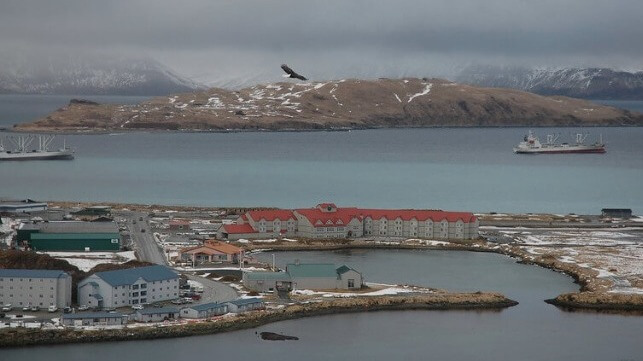Maersk Withdraws from Key Alaskan Ports

Global shipping giant Maersk has announced a significant change to its operations in Alaska. The company plans to withdraw from two critical ports in the state as part of its transpacific service network. This decision has raised concerns among local fishing interests, particularly in the Alaska pollock fishery, which is valued at $1.5 billion. The withdrawal from Dutch Harbor and Kodiak marks a pivotal shift in the shipping landscape for Alaskan seafood exports.
Impact on Alaskan Fishing Industry
Maersk’s decision to suspend calls at Dutch Harbor and Kodiak is a blow to the Alaskan fishing industry. Dutch Harbor is one of the largest commercial fishing ports in the United States. In 2022, it saw the landing of approximately 613.5 million pounds of seafood across various species. The port serves as a vital export hub, sending seafood products to markets in Europe and Asia. Kodiak, another key port, is home to a large fleet and multiple canneries, primarily processing pollock, a species known for its high volume and versatility in food products.
The withdrawal comes at a challenging time for Alaska’s fishing industry. Over the past few years, the industry has faced significant declines in several key commercial species, including snow crab, chum salmon, and king salmon. These declines, coupled with broader economic factors, have severely impacted profitability. According to NOAA Fisheries, the industry’s profitability has been cut in half since 2021. The loss of Maersk’s services could exacerbate these challenges, making it harder for local fishermen to access global markets.
Reasons Behind Maersk’s Decision
Maersk has cited an “ongoing effort to strengthen our product offerings and maintain reliability in the network” as the reason for its withdrawal from the two Alaskan ports. The company aims to optimize its service routes and improve operational efficiency. The final westbound voyage from Dutch Harbor will be carried out by the Danish-flagged container feeder Cape Sorel on February 11. This decision reflects a broader trend in the shipping industry, where companies are continually reassessing their service networks to adapt to changing market conditions.
While Maersk’s withdrawal may streamline its operations, it raises questions about the future of seafood exports from Alaska. The fishing industry relies heavily on reliable shipping services to reach international markets. Without access to major shipping lines, local fishermen may struggle to compete, especially as they face declining fish stocks and rising operational costs. The long-term implications of this decision could be profound, potentially reshaping the dynamics of Alaska’s fishing economy.
As the situation unfolds, stakeholders in the Alaskan fishing industry will be closely monitoring the impact of Maersk’s withdrawal. The hope is that alternative shipping solutions can be found to mitigate the effects on this vital sector of the state’s economy.
